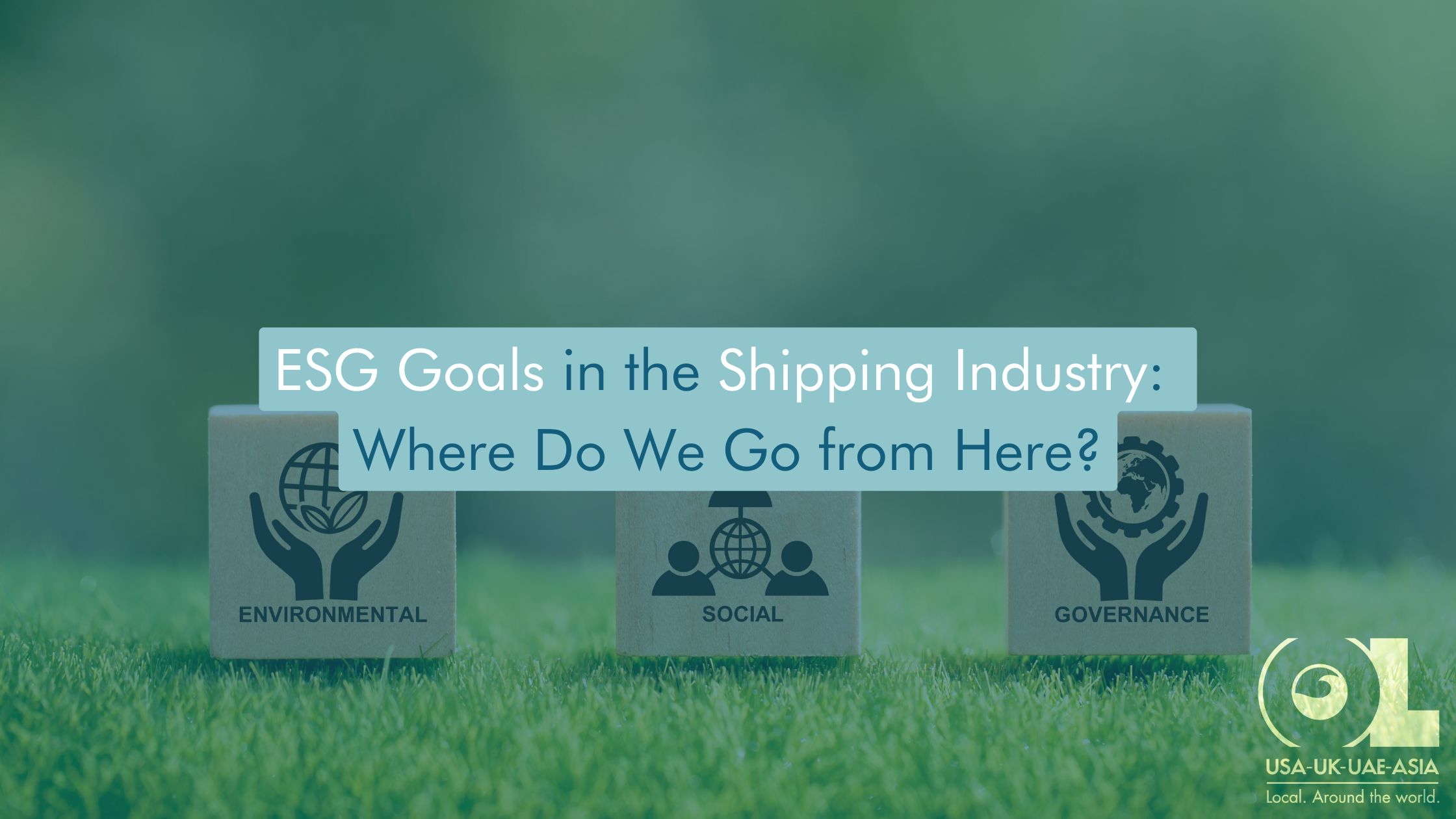In the dynamic and ever-evolving landscape of modern commerce, the concept of ESG, which encapsulates Environmental, Social, and Governance principles, has emerged as a potent force shaping the future of the shipping industry. It’s not merely a buzzword or a fleeting trend; rather, it represents a profound paradigm shift that underscores the utmost importance of embracing responsible and sustainable business practices. ESG has transcended the realm of corporate rhetoric to become a core guiding principle that drives tangible, meaningful change. It is not only about transforming the way companies operate; it is about charting a course for a more sustainable, responsible, and prosperous future for the planet and its inhabitants.
At the vanguard of this transformative journey stands the International Maritime Organization (IMO), an entity passionately dedicated to the cause of promoting sustainable shipping practices. With unwavering determination, the IMO has set its sights on an awe-inspiring set of goals for the year 2030. These goals are far from mere aspirations; they are formidable benchmarks that beckon all stakeholders within the maritime world to come together in a concerted effort. The objectives are clear and unambiguous: achieve a 5% adoption of sustainable and zero-emission fuels and make a substantial 10% reduction in greenhouse gas emissions.
Our company, OL, takes immense pride in embracing these lofty ambitions set forth by the IMO. We fully comprehend the profound implications of these objectives, not only for our industry but for the planet itself. Our commitment to ESG goes beyond a mere sense of duty or compliance; it is ingrained deep within our company’s DNA, influencing our day-to-day decisions, shaping our actions, and, most importantly, determining our impact on the environment and society at large.
Setting the Stage
The IMO’s goals for 2030 are not arbitrary figures plucked from thin air; they represent a visionary quest for a more sustainable and environmentally responsible future. The quest for a 5% utilization of sustainable and zero-emission fuels signifies a momentous shift towards cleaner energy sources, promising to significantly reduce the industry’s carbon footprint. Simultaneously, the pursuit of a 10% reduction in greenhouse gas emissions holds the potential for a substantial contribution to the global battle against climate change.
The Industry’s Challenge
While the maritime community has showcased a commendable willingness to support emission reduction efforts, it is unequivocally clear that a great deal of work remains to be accomplished. The current demand for ships and sustainable fuel production falls short of the ambitious targets set by the IMO. This disparity rings alarm bells, with estimations suggesting that sustainable fuel production may fall woefully short by as much as 75%. Moreover, current ship orders provide unsettling indications of the possibility of missing these crucial goals by as much as 80%.
The urgency of the situation cannot be overstated. It is underlined by the stark fact that unless pivotal interim milestones are achieved by 2025, the industry stands on the precipice of failing to meet the vital 2030 objectives. This juncture demands nothing less than a resolute, concerted effort and unwavering dedication to the shared goals of ESG.
The Role of a Carbon Levy
The IMO’s strategic plan to institute a carbon levy by 2025, with the intention to commence charges for shippers globally in 2027, represents a significant step in the right direction. However, it is imperative to acknowledge the uncertainty surrounding the magnitude of this levy and its potential to expedite the adoption of typically more expensive sustainable fuels. Nonetheless, our company stands prepared to adapt, evolve, and wholeheartedly embrace the ever-evolving regulatory landscape, thus reinforcing our unwavering support for the transition towards a cleaner, more environmentally responsible maritime industry.
The Road Ahead
As we cast our gaze towards the horizon, one thing remains steadfast and unswerving – our commitment to meeting the IMO’s 2030 targets. Our journey towards sustainability is not just an obligation we shoulder; it is an opportunity we embrace with open arms. Sustainable shipping practices not only harmonize with global objectives but also usher in tangible benefits for our clients. Reduced operational costs, heightened efficiency, and a competitive edge in a world where sustainability is paramount are all part of the future we envisage.



